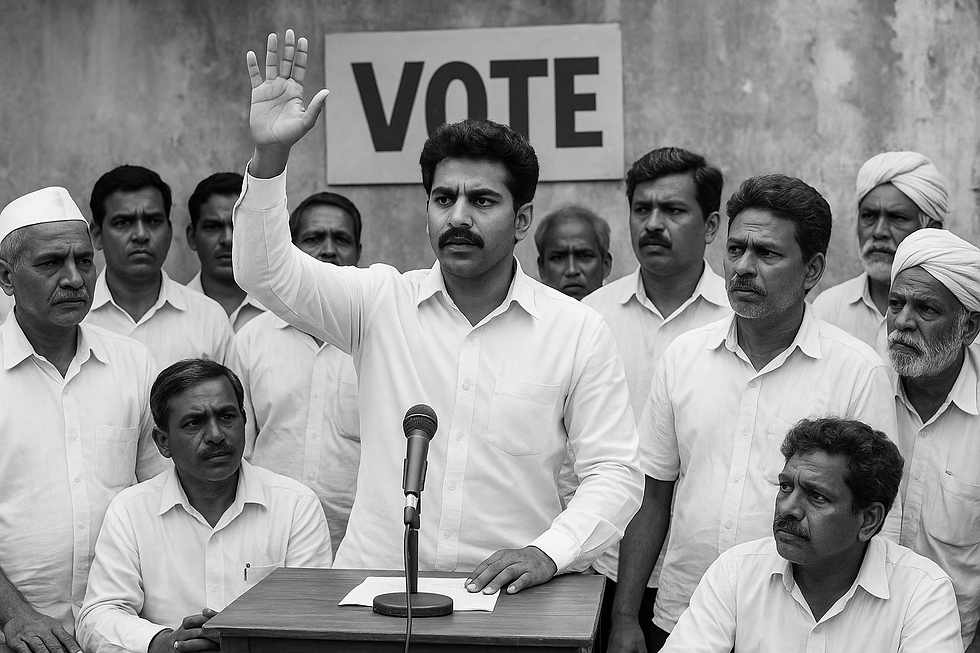Chinks in the Faith of Public Administration" – Supreme Court Sets Aside Bail in Rajasthan Exam Fraud Case
- Chintan Shah

- Mar 13, 2025
- 4 min read
Summary of the Judgment
Case Name: State of Rajasthan v. Indraj Singh & Another
Date of Judgment: 7th March 2025
Bench: Hon'ble Justice Sanjay Karol and Hon'ble Justice Ahsanuddin Amanullah
Advocates Appeared:
For the Appellant (State of Rajasthan): Mr. Shiv Mangal Sharma, Additional Advocate General
For the Respondents: Mr. Ashwini Kumar Singh and Mr. Sanjay R. Hegde, Senior Counsels
Acts and Sections Involved:
Sections 419, 420, 467, 468, and 120B of the Indian Penal Code, 1860
Sections 3 and 10 of the Rajasthan Public Examination (Prevention of Unfair Means) Act, 2022
Section 27 of the Indian Evidence Act, 1872
Cited Judgments:
Ansar Ahmad v. State of U.P. (2023 SCC OnLine SC 974)
Ash Mohammad v. Shivraj Singh (2012) 9 SCC 446
Puran v. Rambilas (2001) 6 SCC 338
Mahipal v. Rajesh Kumar (2020) 2 SCC 118
Swamy Shraddhananda v. State of Karnataka (2008) 13 SCC 767
Ajwar v. Waseem (2024) 10 SCC 768
Shabeen Ahmad v. State of U.P. (Criminal Appeal No. 1051 of 2025)
Introduction
This judgment by the Hon'ble Supreme Court of India examines the validity of bail granted to the respondents, Indraj Singh and Salman Khan, accused of compromising the integrity of a public recruitment examination in Rajasthan. The State of Rajasthan challenged the High Court's decision granting bail, contending that the offence was grave and detrimental to public trust in government employment procedures.
Factual Background
The case arose from an FIR registered on 28th February 2024, alleging that Indraj Singh arranged for a dummy candidate to appear on his behalf in the Assistant Engineer Civil (Autonomous Governance Department) Competitive Examination-2022. Respondent Salman Khan was implicated for facilitating the fraudulent act in exchange for a cheque of Rs.10 lakhs. Both were arrested in early March 2024, and their bail applications were rejected by the Additional Sessions Judge, Jaipur, citing the seriousness of the offence. However, the Rajasthan High Court later granted bail, prompting the State to approach the Supreme Court.
Legal Issues
The Supreme Court considered the following key legal questions:
Whether the High Court exercised its discretion appropriately while granting bail.
Whether the severity of the offence warranted the cancellation of bail.
The applicability of established precedents on bail revocation and judicial discretion.
Observations of the Supreme Court
The Hon'ble Supreme Court analysed various judicial pronouncements to distinguish between the setting aside of a bail order and the cancellation of bail. As noted in Ansar Ahmad v. State of U.P.:
"The concept of setting aside as unjustified, illegal or perverse order is totally different from cancelling an order of bail on the ground that the accused had misconducted himself or due to some supervening circumstances."
The Court reiterated that an order granting bail can be set aside if it is found to be erroneous or against established principles of justice. In the present case, the High Court’s reasoning included that no candidate had yet been appointed based on the examination and that the accused lacked criminal antecedents. However, the Supreme Court found these reasons insufficient given the gravity of the offence.
Significance of Public Trust in Examinations
The Supreme Court emphasised the importance of maintaining integrity in public recruitment processes, stating:
"Each act, such as the one allegedly committed by the respondents, represents possible chinks in the faith of the people in public administration and the executive."
The Court acknowledged that competitive examinations are the cornerstone of government recruitment, and any compromise in their fairness directly affects thousands of candidates.
Interference with High Court's Bail Order
While the Supreme Court acknowledged the principle that bail once granted should not be revoked lightly, it cited Mahipal v. Rajesh Kumar to assert that an appellate court must intervene if the lower court's order is perverse or suffers from serious legal infirmities. The judgment in Ajwar v. Waseem was also relied upon to reaffirm that judicial discretion in granting bail must consider the broader impact on society.
"Bail once granted ought not to be cancelled in a mechanical manner. However, an unreasoned or perverse order of bail is always open to interference by the superior court."
Conclusion and Final Ruling
After a detailed analysis, the Supreme Court allowed the appeal, setting aside the High Court’s order and directing the accused to surrender within two weeks. However, it clarified that the accused could apply for bail again after key witnesses had been examined during trial.
Implications of the Judgment
This ruling reinforces the judiciary’s role in upholding fairness in public examinations. The decision underscores the principle that the grant of bail should not be a mere formality but must be grounded in the gravity of the offence and its societal impact.
By reaffirming the higher threshold for judicial discretion in cases involving public trust, the Supreme Court has sent a strong message against examination fraud and corruption in recruitment processes. This judgment is likely to influence future bail decisions in cases involving academic and professional malpractice, ensuring stricter scrutiny of those accused of tampering with public examinations.
This judgment serves as a vital precedent for legal practitioners handling cases of public employment fraud, emphasising the broader implications of judicial decisions on societal trust in governance.



Comments